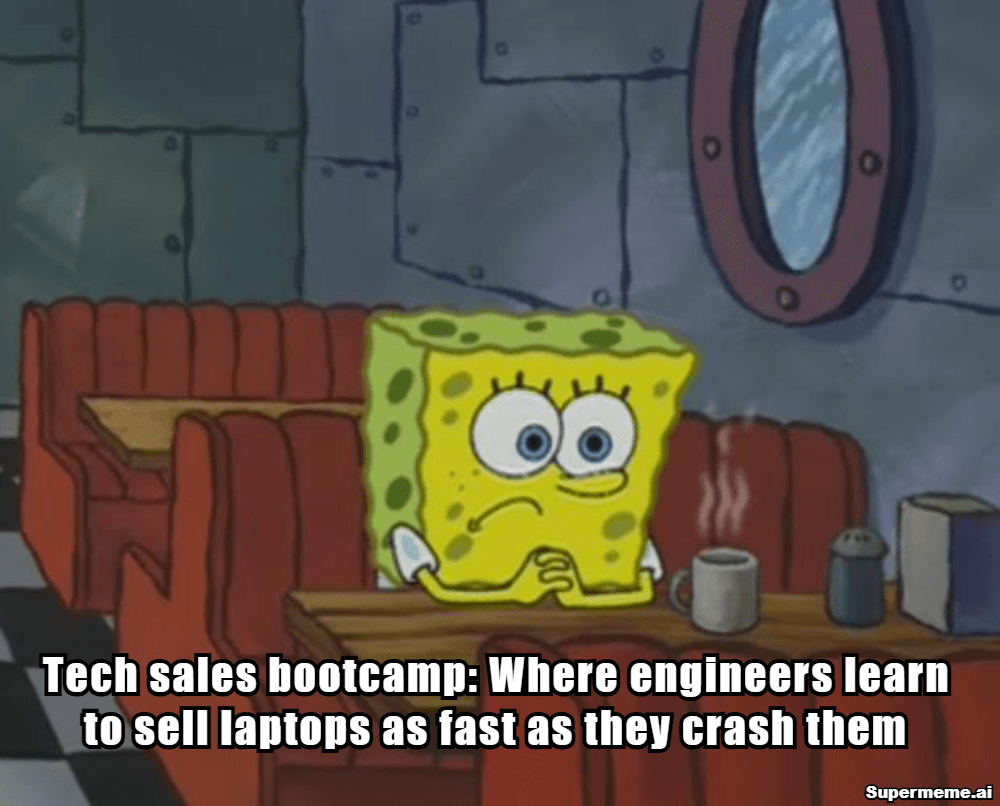What to Expect from a Top Tech Sales Engineer Bootcamp
As technology continues to evolve, the demand for professionals who can bridge the gap between complex technical solutions and business needs has never been higher. Enter the tech sales engineer—a hybrid professional who understands both technology and sales. With organizations increasingly relying on cloud platforms, SaaS products, and enterprise tech solutions, companies are actively hiring tech sales engineers who can translate technical jargon into value-driven propositions.
But how does someone break into this competitive field? For many, the answer lies in attending a tech sales engineer bootcamp. These intensive programs are designed to equip aspiring sales engineers with the right blend of technical knowledge, sales acumen, and industry insight. Whether you’re a fresh graduate, a career switcher, or a seasoned salesperson looking to level up, enrolling in a reputable bootcamp can fast-track your career.
So, what exactly can you expect from a top-tier tech sales engineer bootcamp? Let’s explore the curriculum, format, career support, and other key aspects you should be prepared for.

1. Comprehensive Curriculum Covering Both Sales and Tech
Unlike traditional sales or tech bootcamps that focus on just one domain, a sales engineering bootcamp merges technical product knowledge with sales strategy.
Technical Topics You’ll Cover:
Cloud Computing: Understand platforms like AWS, Microsoft Azure, and Google Cloud Platform.
Software Development Basics: Learn foundational coding concepts to better communicate with engineering teams.
Networking and Infrastructure: Understand how web applications function from back-end to front-end.
Cybersecurity Fundamentals: Be prepared to answer questions around secure architectures and protocols.
CRM and SaaS platforms: Familiarity with tools like Salesforce, HubSpot, or Zendesk.
Sales Topics You’ll Cover:
Solution Selling Frameworks: Master methodologies like SPIN Selling, Challenger Sales, and MEDDIC.
Product Demonstration Techniques: Learn how to tailor demos to different stakeholders, from engineers to CEOs.
Discovery and Qualification Skills: Understand customer pain points and align solutions accordingly.
Handling Technical Objections: Gain the confidence to respond to in-depth technical questions.
Cross-functional Collaboration: Learn how to liaise with account executives, product managers, and developers.
A good bootcamp balances theory with hands-on practice, so you’re not just memorizing concepts but applying them in real-world scenarios.
For those exploring a wider range of career paths that blend technical expertise with hands-on skills, technical bootcamps aren't limited to just IT or software. Professionally focused HVAC classes can prepare students for rapidly growing trades like heating, ventilation, air conditioning, and refrigeration—an industry now offering comprehensive training programs across South Texas.
2. Real-World Simulations and Role-Playing
Sales engineering is not just about knowing the product—it’s about presenting it with authority and empathy. A top bootcamp will push you into scenarios where you’re simulating:
Live demos
Sales discovery calls
Technical deep dives
Stakeholder Q&As
Proposal reviews
These simulations help refine your communication skills, problem-solving abilities, and confidence—all of which are vital for on-the-job success.
Expect feedback from instructors and peers after every role-play session, helping you iterate quickly and improve with every round.
3. Exposure to Modern Tools and Platforms
In today’s tech-driven environment, sales engineers must be adept at using industry-standard tools. A high-quality bootcamp introduces students to tools such as:
CRM systems: Salesforce, HubSpot
Sales enablement tools: Gong.io, Outreach, Chorus
Demo environments: Navattic, Reprise, or even live product sandboxes
Presentation tools: Canva, Prezi, Google Slides
Collaboration platforms: Slack, Notion, Asana
You'll often be asked to build your mock demos, integrate mock APIs, or navigate through technical dashboards—all to make you “job-ready” from day one.
4. Industry Expert Mentorship
One hallmark of a premium bootcamp is access to mentorship from seasoned professionals. These mentors could be:
Senior Sales Engineers at tech giants
Solutions Consultants at SaaS companies
Hiring Managers or Sales Directors
Former bootcamp graduates are now working in the field
Through one-on-one sessions, webinars, and office hours, you’ll get to:
Ask real-world questions
Get personalized career advice
Learn how to tailor your resume
Practice for interviews with professionals who’ve “been there, done that”
This industry insight is invaluable, especially when preparing to navigate complex interviews or understand what hiring managers look for.
5. Career Coaching and Job Search Support
A strong bootcamp doesn’t just stop at education—it helps you land your first job. Here’s what you can expect from the career support team:
Resume and LinkedIn Optimization: Ensure you’re showcasing the right skills and achievements.
Mock Interviews: Practice both technical and behavioral interview questions.
Job Boards and Recruiter Access: Get early access to job postings or referrals through the bootcamp’s network.
Portfolio Development: Build a compelling sales engineering portfolio that includes product demos, case studies, and sales presentations.
Salary Negotiation Tips: Learn how to evaluate offers and negotiate better compensation packages.
Some bootcamps even offer job guarantees—meaning if you don’t land a job within a set period after graduation, you may be eligible for a partial or full refund.

6. Networking Opportunities and Alumni Community
Networking is a massive part of getting hired, especially in tech sales. Top-tier bootcamps foster a tight-knit alumni community where you can:
Attend virtual meetups or in-person events
Participate in alumni job boards or Slack channels
Ask questions and get referrals
Collaborate on projects or mock presentations
Hear success stories and get inspired
Some bootcamps even invite hiring partners to demo days, where students can present in front of recruiters or company reps—essentially turning your graduation into a hiring opportunity.
7. Flexible Learning Options
Whether you’re working full-time or transitioning between roles, most leading bootcamps offer flexible formats:
Full-Time (4–8 weeks): Immersive, intensive training—ideal if you can dedicate full days to learning.
Part-Time (8–12 weeks): Evening or weekend classes for working professionals.
Self-Paced Options: Pre-recorded lessons with occasional live check-ins.
Expect 15–30 hours of commitment per week, including lectures, assignments, simulations, and career sessions.
Many bootcamps also offer lifetime access to learning materials, so you can revisit concepts or tools even after you’ve landed your job.
8. Proven Track Record of Graduate Success
Before enrolling, it’s important to vet the bootcamp’s outcomes. Top programs typically boast:
High placement rates (70–90% within 3–6 months)
Graduates are placed at companies like Google, Salesforce, Zoom, Twilio, and Snowflake
Starting salaries ranging from $70,000 to $120,000+, depending on location and company
Transparent reviews on sites like Course Report, SwitchUp, or LinkedIn
Ask to see outcome reports, read alumni testimonials, and even reach out to graduates on LinkedIn to get real feedback.

9. Certifications and Projects You Can Showcase
Some bootcamps provide certifications upon completion, and while not always required, they can help you stand out in the hiring process. These certificates might be in:
Sales Engineering Fundamentals
SaaS Demo Mastery
Cloud Sales Foundations
Technical Product Selling
You’ll also graduate with hands-on projects, such as:
A mock demo of a SaaS product
A case study presentation for a fictitious client
A recorded discovery call or sales pitch
A proposal deck tailored to a specific persona (e.g., CTO vs CFO)
These deliverables can be added to your portfolio or discussed during interviews.
10. A Clear Path to Career Progression
Once you complete a bootcamp and land your first job, what’s next? Many graduates start in roles such as:
Sales Development Representative (SDR) with Technical Emphasis
Associate Sales Engineer
Solutions Consultant
Pre-Sales Support Specialist
From there, with experience and continued learning, they can grow into:
Senior Sales Engineer
Solutions Architect
Technical Account Manager
Sales Engineering Manager
A great bootcamp helps you map out this journey, showing how to grow both technically and professionally over time.

Final Thoughts
The tech sales engineer role is one of the most rewarding, dynamic, and high-paying roles in the tech world. It combines communication, technical understanding, and business strategy in a way few other careers do.
If you’re looking to enter the field or transition from a related role, enrolling in a top tech sales engineer bootcamp can be your best investment. These programs are designed not just to teach, but to transform you into a job-ready professional with the confidence to succeed in any sales conversation.
From hands-on simulations to industry mentorship and job support, a great bootcamp gives you everything you need to hit the ground running—and more.